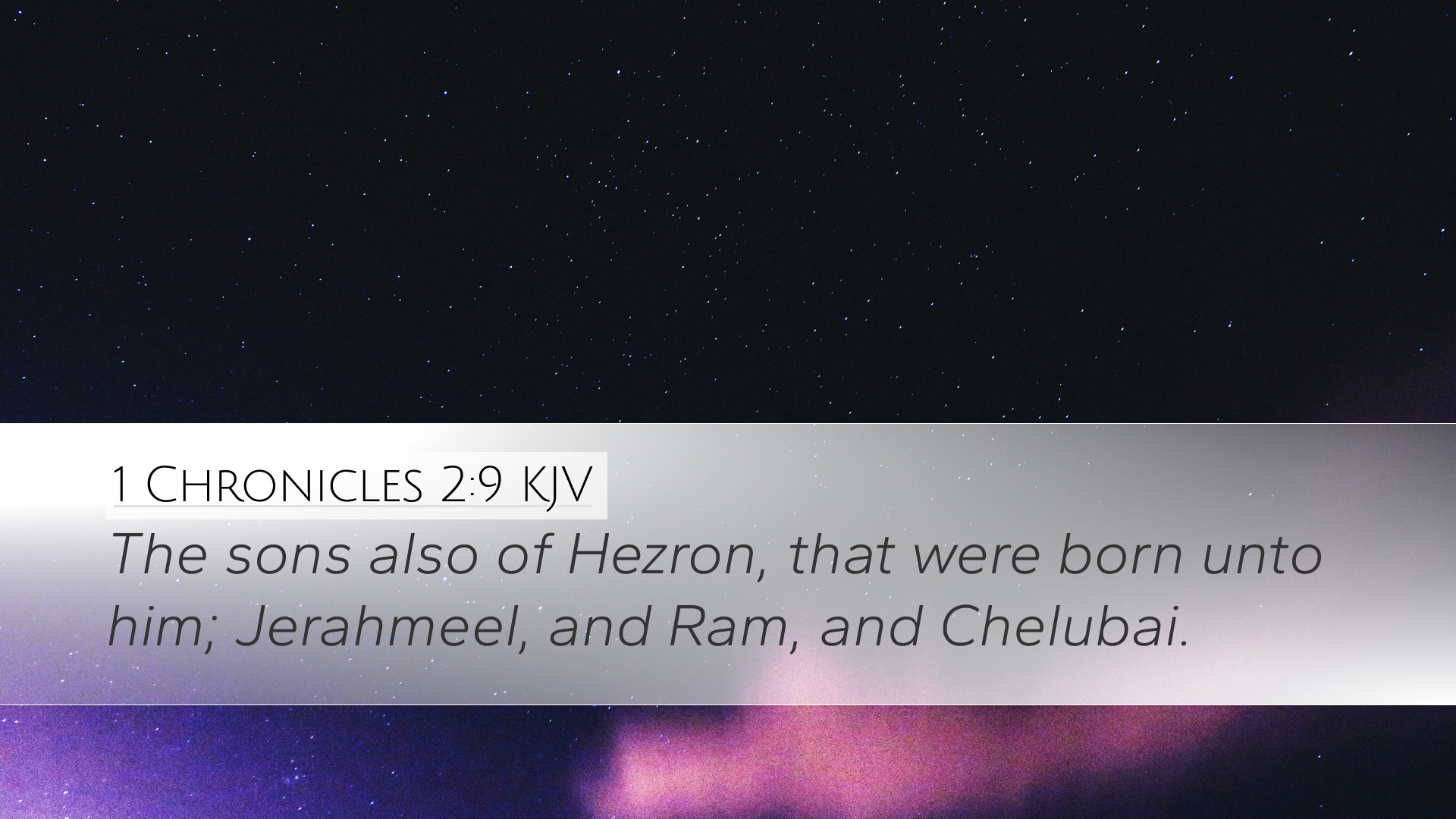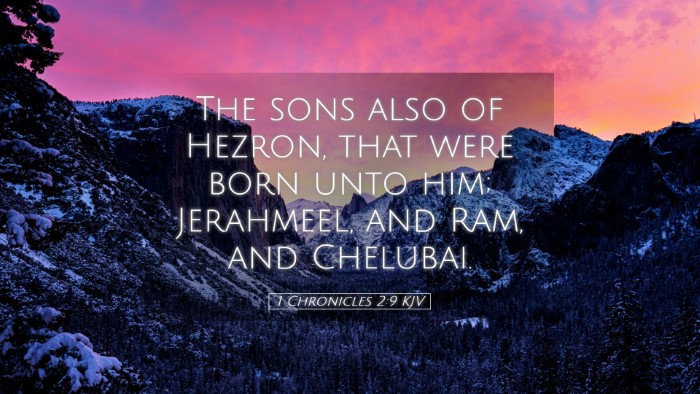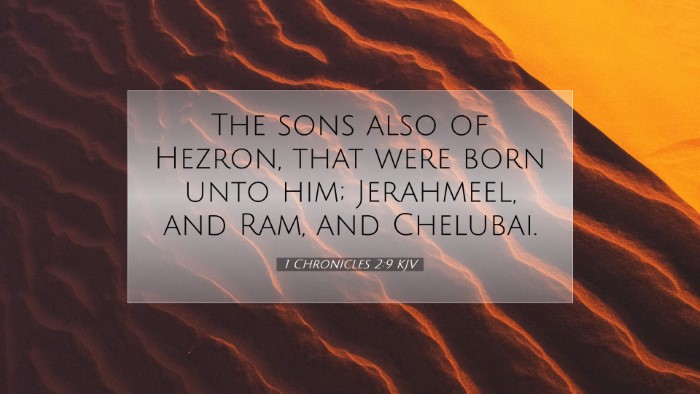Commentary on 1 Chronicles 2:9
Verse Text: "The sons of Chelub the son of Hezron were: Mesha his firstborn, who was the father of Ziph; and the sons of Mariah the father of Hebron." (1 Chronicles 2:9)
Introduction
The genealogies in the Chronicles serve a significant purpose in tracing the lineage and heritage of the Israelite people. This specific verse points out Chelub's descendants, which leads us into deeper insights regarding family, inheritance, and the benefit of understanding one’s roots in the context of God’s covenant.
Historical Context
Genealogies were essential in ancient Israel, particularly during the post-exilic period when the returning exiles sought to reclaim their heritage and validate their roles in society. As noted by Matthew Henry, such listings were crucial for identifying priests, Levites, and those eligible for certain tribal privileges. The tribal affiliations demonstrated God's faithfulness to His promises.
The Significance of Names
Every name in the Bible holds significance; thus, as we explore the lineage found in this verse, we must understand the meaning and implications of the names involved. Albert Barnes comments on the importance of names in the Hebrew context, where naming was often linked to identity and destiny.
- Chelub: Likely derived from a root meaning "to be whole" or "to be bold," reflecting a character trait that may have been valued in his family. It suggests an ancestry characterized by strength and wholeness of character.
- Mesha: Meaning "savior" or "deliverer," indicative of future roles anticipated from his descendants.
- Ziph: Linked to “deer,” symbolizing swiftness or grace in biblical narratives.
Commentary Insights
Adam Clarke emphasizes that names carry prophetic elements. In studying the origins and meanings of these names, one may see foreshadowings of the attributes and roles that descendants carried throughout Israel’s history. Understanding these roles contextualizes the prevalent themes of salvation, leadership, and grace woven through the genealogies.
Theological Implications
Theologically, this verse touches on God's plan for the Jewish people, emphasizing that even in detail, God is sovereign over history. Matthew Henry asserts that God’s providence is ultimately evident in these genealogies, reaffirming His covenantal promises from Abraham through David. Each generation, despite its failings, is part of a grand narrative that leads to the fulfillment of God's redemptive purposes.
Furthermore, this verse illustrates the importance of familial lines and heritage. Albert Barnes notes the implications for the Israelites, as they had pride in their lineage and connection to God's chosen. The genealogical records were not merely symbolic; they carried weight regarding societal roles within ancient Israel.
Practical Applications
For modern pastors and theologians, the study of genealogies, as seen in this verse, presents numerous applications:
- Understanding Identity: Just as the Israelites found their identity in their lineage, Christians today find their identity in being children of God. Reflecting on our spiritual heritage can encourage personal faith and service.
- Covenantal Faithfulness: The continuity of God’s promises throughout generations teaches us about God's unchanging character and beckons us to trust in His faithfulness in our lives.
- Community and Fellowship: The genealogical records remind us of our connections with one another within the church. Each member, with distinct backgrounds and gifts, plays a role in the larger body of Christ.
Concluding Thoughts
1 Chronicles 2:9 serves as a cornerstone for understanding the heritage of Israel while simultaneously opening avenues for deeper theological reflection and application. By engaging with the text, one finds not only a historical record but also a divine blueprint that resonates with themes of identity, community, and God’s unending faithfulness.


